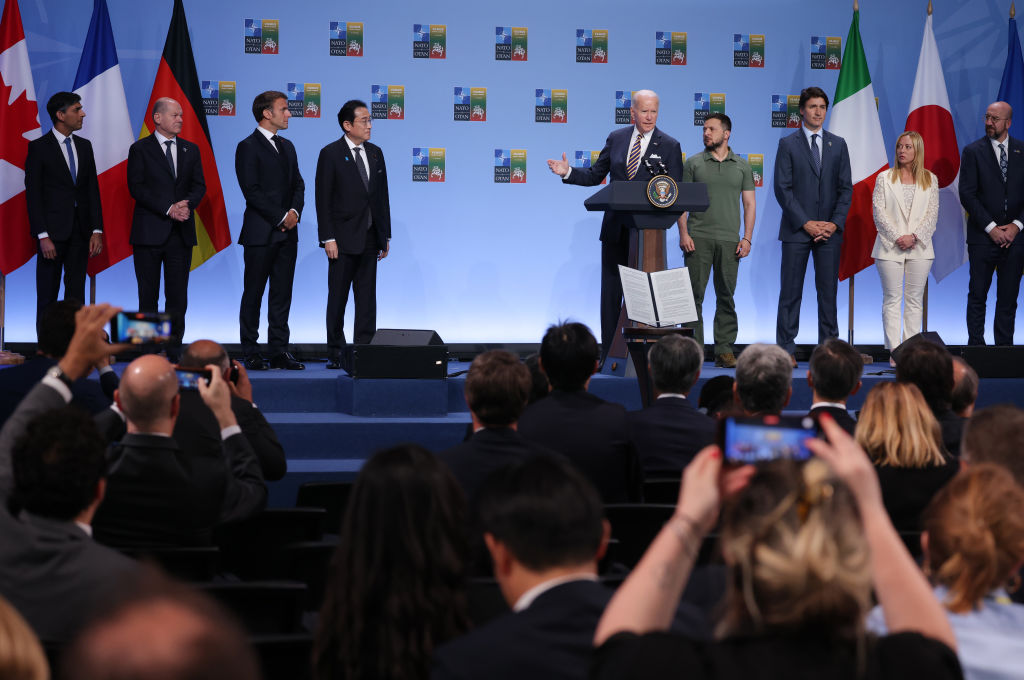G7 to Endorse Code of Conduct for AI Development
The Group of Seven (G7) industrial nations is set to support a code of conduct for companies involved in the advancement of artificial intelligence (AI) systems. This voluntary code is a significant milestone in establishing regulatory frameworks for AI across major countries and addresses concerns regarding privacy and security risks.
The 11-point code, initiated by leaders from the G7 economies, aims to promote the global adoption of safe, secure, and trustworthy AI. It provides guidance for organizations engaged in developing cutting-edge AI systems, including foundational models and generative AI systems. The objective is to harness the benefits of AI while effectively managing associated risks and challenges.
Key aspects of the code include companies implementing measures to identify, assess, and mitigate risks throughout the AI lifecycle. It also emphasizes the importance of addressing incidents and patterns of misuse after AI products have been deployed. Additionally, the code encourages companies to publish public reports detailing the capabilities, limitations, and potential misuse of their AI systems, as well as investments in robust security controls.
Vera Jourova, digital chief of the European Commission, highlighted at an internet governance forum in Kyoto that a Code of Conduct provides a solid foundation for ensuring safety and acts as an interim measure until formal regulations are established.
UN Forms High-Level AI Advisory Board
In a related development, United Nations Secretary-General António Guterres has taken a step towards addressing global AI governance by assembling a panel of 39 experts. The diverse advisory group comprises prominent academics, industry leaders, and representatives from foreign governments, with expertise from Microsoft, OpenAI, and Sony, among others, represented.
This multi-dimensional AI advisory panel aims to enhance global AI governance and includes members from six continents, reflecting a wide array of perspectives. Secretary-General Guterres emphasized the transformative potential of AI for societal progress, while acknowledging the risks associated with its malicious use. Responsible AI governance is crucial in maintaining trust in institutions, preserving social cohesion, and safeguarding democracy.
This initiative aligns with the growing global interest in AI and efforts to address its potential risks through collaboration between policymakers and tech experts.
These developments highlight the commitment of international organizations and governments to establish guidelines and frameworks for the responsible development and use of AI systems. The endorsement of the G7 code of conduct and the formation of the UN AI advisory board marks significant progress in global AI governance and paves the way for further collaboration and regulation in this rapidly advancing field.
© 2023 TECHTIMES.com All rights reserved. Do not reproduce without permission.

I have over 10 years of experience in the cryptocurrency industry and I have been on the list of the top authors on LinkedIn for the past 5 years. I have a wealth of knowledge to share with my readers, and my goal is to help them navigate the ever-changing world of cryptocurrencies.




